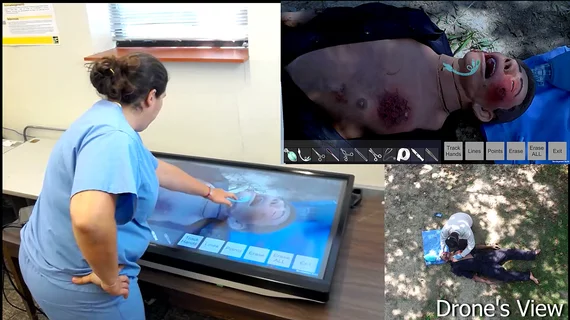Researchers use augmented reality to create telementoring system
A research team has created a telementoring system that lets physicians who are in remote areas connect with more experienced doctors and help perform complicated procedures.
Researchers with Purdue University in Lafayette, Indiana, have developed a technique that uses augmented reality (AR) tools to connect doctors with others from around the world. It was designed to help less-experienced doctors who are in war zones, responding to natural disasters or practicing in rural areas.
The system allows a mentee to wear an AR headset in the field and features a transparent headset screen. The headset lets the mentee see the patient in front of them, while that same image is displayed on a video monitor in real time for their mentor in a separate location.
Through the system, the mentor is able to provide real-time, on-screen feedback. The system also uses computer vision algorithms to track and align virtual notes and marks.
“Even without having highly experienced medical leaders physically co-located in the field, with this technology we can help minimize the number of casualties while maximizing treatment at the point of injury,” project team leader Juan Wachs said in a statement.
Since being developed, the system has gone through one round of clinical evaluation and is expected to go through another. It will also be tested during a simulated battlefield experiment at a Navy base in Virginia.
“Our technology allows trainees to remain focused on the surgical procedure and reduces the potential for errors during surgery,” project member Edgar Rojas Muñoz said in a statement.
Video of the AR telementoring system is available here.

